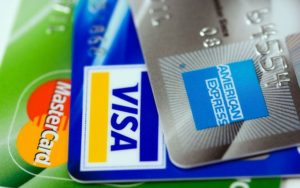Listen on iTunes. Listen on Google. Listen on Stitcher.
When my parents came to this country they literally arrived with empty pockets and a dream of a better, safer and more prosperous life than the one they had known in Ethiopia. From New York to Illinois to California to Georgia my parents have almost done it all. Between the two of them, they’ve worked as a taxi driver (pre-Uber days), a hotel doorman, a valet attendant, a florist, both as technicians, a grocery store baker, a house-cleaner and several other jobs. They’ve worked hard since coming to this country and continue to do so today especially now that their son respectfully pushes them towards financial independence.
Now, I am quickly finding out as I’ve been on this journey to financial independence with my wife for almost 2 years how little my parents knew about personal finance. And this was no fault of their own. How are you supposed to know to save and invest if no one ever tells you? I did the math and if they had even just saved and invested an average of $200/mo over the last 32 years in Vanguard’s S&P 500 Index Fund (VFINX) they’d have a little over $600,000 and that’s without question. The S&P 500 index gained an annualized return of 10.37% (dividends reinvested) from August 1986 to August 2018. And by 2026 with a steady 10.37% interest rate they would have $1.4 million (40 year period of investing from 1986 to 2026)! Of course we don’t know for sure if the S&P 500 index will continue to earn the 10.37% average over the next 8 years, but you get the point. You can see what I saw when I was doing all of my hypothetical models of various compound interest calculations.

Then I got to thinking. My parents were immigrants who came to the United States of America, but we’re not provided the valuable, personal finance education that could have otherwise changed where they are today. And even now, there are more and more immigrants who are legally and properly coming to this country with the same hopes and dreams my parents had over 32 years ago. You might be that person and 32 years from the time you’re reading this (maybe sooner) I hope and strongly believe you will have achieved financial independence. And this will have been possible, because you took the time to read this and follow the words of wisdom presented here.
As an immigrant, you will face challenges American born individuals will never face. You may be learning English for the first time. You will have to get used to laws and rules set by the U.S. government that may not be present in your home country, such as driving laws (you know what I’m talking about). I hope this will help you as I did my best to create a financial independence guide for immigrants so that you find success with money in ways I wish my parents did.
Get Life Insurance
Life insurance is a critical must as you begin to follow the principles in this financial independence guide. I see immigrants who come to this country, establish themselves and start to live a decent life until the unthinkable happens. The breadwinner for the family dies and there was never a life insurance policy in place to financially protect his or her loved ones. Don’t let this happen to your family.
Get term life insurance. It’s cheap and it does the job. Aim for 10 times your income or a minimum that will provide income to those who depend on you. A minimum could be $500,000 or $1,000,000. You would be surprised at how affordable a term life insurance policy amount for one million dollars is. Also, take into consideration any outstanding debts like a mortgage or student loan a family member may have. Life insurance for stay-at-home-parents also is needed and that amount will vary from family to family. $250,000 to $500,000 should cover the stay-at-home moms and dads.
Term life insurance is low-cost meaning you can put more of your hard earned dollars towards investments and savings accounts and reducing any debt you have. Also, included in this is having a will for your family. Establish a will as early as possible and it won’t hurt to have an estate plan too. Visit Haven Life AND Health IQ for free term life insurance quotes. Get a couple of quotes so you can get the best deal. The process of getting a term life insurance policy was super easy and worth it!
Start Tracking Your Net Worth
As an immigrant in the U.S., you have a very big advantage. It’s because you most likely will not have a negative net worth. You might actually have a positive net worth depending on if you’re bringing some assets with you to the U.S. That’s something to be happy about, believe me. You don’t have debt and anything crazy you owe money for. You are in a position where you will only be adding to your net worth. So be happy about that!
The most simple way to track your net worth is to create an Excel spreadsheet with two columns: Assets and Liabilities. Assets will be the stuff that makes your net worth positive such as money in a savings account, home value and various investments. The liabilities will be the stuff that brings your net worth down like student loans, credit card debt or a mortgage. Make sure to always keep assets greater than liabilities. Overall, the goal for financial independence should be to have 0 liabilities as you continue to increase your assets.
If you don’t feel like creating your own spreadsheet I have two free options here:
- Personal Capital – Awesome free online tool and app to track net worth. It’s what my wife and I use personally. You can connect all your accounts and the program makes it easy to track your net worth.
- If you’re not a fan of linking your accounts to websites or programs like this, subscribe to the Habesha Finance newsletter and get access to a free Google sheets template. It’s pretty basic. You list all your assets on one side and all your liabilities on the other side and the difference is calculated for you.
Remember…

Saving Money

The temptation to buy the latest iPhone or laptop is big when you get your first paycheck. Let me give you some honest, brotherly advice. DON’T! Start saving when you start earning a paycheck. Simple as that. The earlier you learn to save, the more successful you will become in achieving financial independence. This is why you should plan to save anywhere from 30-50% of your income in retirement accounts like a 401(k) and IRAs. For more information about the retirement accounts to save in, go check out the Habesha Finance Podcast episodes 8-12. Don’t forget to keep an emergency fund that you build up to cover 3 to 6 months of expenses. Just in case anything happens you have money to take care of those times when something urgent comes up.
I understand there is a desire to want to help and support your family back in the country you came from, but you need to understand that you have to take care of yourself too. The best way to support your family is by taking the first year or two and establishing yourself financially in the U.S. And if you need to send money right away each month then I recommend adding a line item in the budget you will have for “Family Back Home” and send the same amount of money each month. There will be emergencies sometimes, but remember you’re still learning so much in a new country and you have to help yourself before you help others. The best way to help and support families back in your country of origin is to help yourself. So start saving the moment you begin earning a wage.
Investing Money
I see so many people who come to this country for the first time and go straight to work, which is not a bad path to begin on. However, those same people never start their investing for the future. The money they make gets sent to their families back in their home countries and 20, 30, 40 years pass by and these individuals have nothing to show for their hard work. This is what makes investing so important on your journey to achieving financial independence. This is what makes investing in your future very important. Like I’ve mentioned before, as immigrants the majority of you have the benefit of starting with a positive net worth. Take advantage of this!

Investing can be hard and difficult, thanks to the news and media. So let me make it as simple as possible for you with two words: index funds. When you open a retirement account or a regular investing account, you have to choose what kind of investments you want to put your money in. Index funds are a good way for any beginner investor to start investing money. Index funds usually have low fees and history has shown these kinds of investments are great for long-term wealth building. Investing money is for the long term. Anyone who tells you about a get rich quick idea means you need to get away quick. So, part of the 30-50% of your savings will go to these index funds and you’ll be very happy you did so.
Start a Monthly Budget
Saving and investing can be difficult if there’s no structure. So in order to do this successfully, you will need to start a monthly budget. There are many free budgeting calculators and apps to help you be financially responsible. Personally, I enjoy using a Google sheets budget that is available to you when you subscribe. My wife and I have been using this budget since the beginning of 2017. This has been a key contributing factor in our ability to get on the path to financial independence. I even created a video tutorial for you to use and reference for this.
When you create your monthly budget, make sure you follow the advice and tips in the video above. If you want to save and invest you can include those categories and the amount for each in your monthly budget. Again if you plan to send money back home you will want to add this amount to your monthly budget. The main goal of budgeting is to give each dollar you earn a task so that you don’t overspend and become broke before the end of each month. That’s called living paycheck to paycheck and it’s a horrible way to live financially.
Education and Student Loans
Knowledge is power. The opportunity to learn and grow as a student in the U.S. is truly great. My advice is to first never take any student loans for a Bachelor’s degree. To accomplish a debt-free education means you may have to go to community college. You may have to work to put yourself through school financially. You may have to apply to hundreds of different scholarships and grants. Whatever your college plan is or your children’s college plan, make sure that student loans are not a part of that plan.

When it’s time to get a professional degree such as a medical degree or law degree then you may have to look at securing low-interest student loans. Still, if I was in this situation I would do everything to not take student loans and limit the amount of debt I owe after getting my professional degree. There are companies that will pay for your higher level education and colleges that are looking for students to awards grants and assistantship so that you don’t have to come out of pocket. The key to life after college is that you don’t spend your professional earning years paying for your college learning years.
Purchasing Used Cars
Never, ever, ever finance a car. Do I make myself clear? I could end this section on that, but I think a little bit of explanation is needed. The average car payment today is $523 according to Experian. That’s outrageous! How are people supposed to save for retirement, kids college funds and pay off a mortgage?
Cars require maintenance, oil changes, tune-ups, service checks and oh yeah that thing that always gets expensive each year, gas! Then add on top of that, car insurance and yearly registration fees! The financial burden of having a car can easily become more than expected if you’re not careful. Hence, why I recommend getting a used, reliable car that does its job.

Even though I’ve paid all my debts off and just about done paying off my wife’s debt I still plan to continue driving my 2007 Toyota Scion tC till the car is not economically usable. If you really want the ultimate savings strategy for a car, don’t buy one. Use public transportation, especially if you live in a city with great public transportation. Atlanta is a city that doesn’t have the best layout for public transportation, but I used to hop on that train so many times earlier in my working years that it saved me so much money. Today my car is paid off and my student loans are too!
Renting vs Owning
One of the biggest mistakes foreigners make in this country is rushing to get a house. Let me start by saying this financial independence guide is to show you that achieving this status takes time. There are no shortcuts or get-rich-quick schemes.
This financial independence guide is indeed a get-rich-over-time process that my wife and I are 100% dedicated to. When it comes to homeownership, you can imagine the pressure we’ve faced from family and friends to buy a house. They all say the same thing: You guys are throwing money away. And while this might seem true at first, the reality is that you are more successful in erasing your debt if you don’t have any high-cost obligations to pay for. And renting helps you do that. Renting a house or an apartment is a great way to buy some time while you clean up your finances and save for a downpayment.
You don’t need to rush into owning a house, condo or townhouse. Start your living arrangements by renting. This will save you so much headache down the road. Also, renting a house is a great preview of home ownership. Don’t jump into home ownership without taking care of your debt and establishing yourself financially. And when you do get ready to buy a home, make sure you have a 20% down payment for a 15-year mortgage and pay no more than 20-25% of your household monthly income every month.
Phones, Clothes, Credit Cards…Stuff!
As I’m writing this the new iPhone XS, XR and XS Max are all coming out in a few days. I was shocked when I saw headlines that mentioned millions of Americans were willing to go into debt for the new iPhone. Seriously? This needs to stop. If you take anything away from this financial independence guide for immigrants it’s that you should never borrow money for something you don’t need. Don’t go into debt for a phone, clothes, furniture, appliances or even a wedding. As Dave Ramsey puts it, “Debt is dumb.”

Yes, Immigrants Can Achieve Financial Independence!
As you can tell I’m very passionate about being debt free and staying that way. So many immigrants ruin their finances early on, because they weren’t properly educated. When you first arrive to the United States of America you will have dreams and goals that are precious. I want you to get the money stuff right so that you don’t have to worry 20, 30 or 40 years from now about your financial status. Let this financial independence guide be a reference for you whether you just immigrated to the U.S. or you have been in this country for some time.

If you’ve read this all the way through to the end then good for you! This post was dedicated to helping those just coming to the United States of America establish and follow a long-term, sustainable goal. It is very much possible for immigrants in the U.S. to build wealth and reach financial independence. The key is in early education. Learn today what you can do to prepare for tomorrow and the future.
I’ve witnessed so many Ethiopian and Eritrean immigrants come to the United States to work, send money back home and never secure their own financial future. This was hard to watch, because I saw it with my own parents. Obviously, there is nothing wrong with coming to this country for a better life and opportunity to support your family wherever they may be. The problem is when you do all those things for others and never focus on yourself. Let this financial independence guide lead you down the path to get your life back, build wealth and make a difference!
What are your thoughts? Do you agree with the principles in this guide? Why or why not? Leave a comment or question below!



